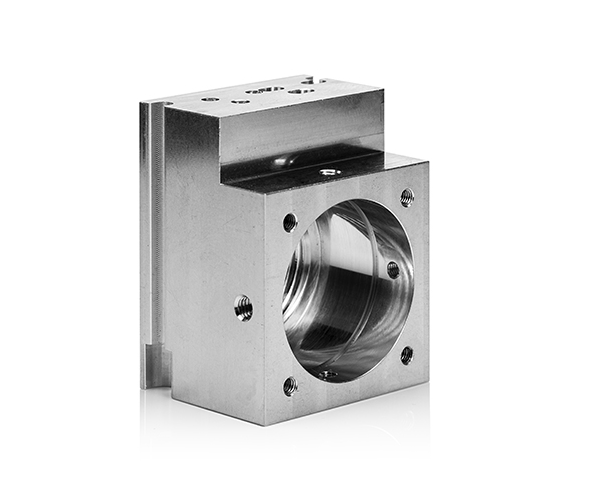CNC machining is a versatile manufacturing process that is compatible with a wide range of materials. Aluminum machining is a common process in product manufacturing due to factors such as its availability in numerous grades, high machinability, and relatively affordable cost. Different types of aluminum alloys are applicable in various machining applications, including rigid architectural components and aerospace parts manufacturing. The guide aims to provide a quick comparison of five common aluminum alloys for machining, discussing their compositions, common applications, and industries that regularly utilize them.

Heart-Treatable Alloys & Non-Heart Treatable Alloys
It’s important to note that the selection of the most appropriate aluminum alloy for machining depends on the specific requirements of the application, such as desired mechanical properties, environmental conditions, and cost considerations. The most common aluminum alloys for aluminum machining include:
Heat-Treatable Alloys
-6061 Aluminum Alloy: It is one of the most widely used alloys due to its excellent mechanical properties, good weldability, and corrosion resistance. It is commonly used in automotive parts, structural components, and general machining applications.
-7075 Aluminum Alloy: Known for its high strength and hardness, 7075 alloy is popular in aerospace and aircraft applications. It has good machinability but requires special care due to its tendency to generate heat during machining.
-2024 Aluminum Alloy: This alloy possesses high strength and good fatigue resistance. It is commonly used in aerospace and structural applications, such as aircraft skins, fuselages, and wing spars.
Non-Heat Treatable Alloys
-5052 Aluminum Alloy: It is a versatile alloy with good formability and corrosion resistance. It finds applications in sheet metal fabrication, marine components, and electronic casings.
-3003 Aluminum Alloy is known for its excellent formability, making it suitable for a wide range of applications that require shaping and bending, such as kitchen utensils, food and beverage packaging, architectural components, and general sheet metal work. It has good weldability and is often used for welding purposes. This alloy has moderate strength, good machinability, and fair to excellent corrosion resistance, depending on the environment. It is not as strong as alloys like 6061 or 7075, but it offers good formability and cost-effectiveness, making it a popular choice for various lightweight and non-structural applications.
How to Choose the Right Aluminum Type for Machining Purposes
When choosing the right aluminum alloy for machining purposes, several factors should be considered:
1. Machinability: Look for alloys that have good machinability, as some aluminum alloys are easier to machine than others. Alloys with lower levels of alloying elements such as manganese or silicon tend to have better machinability.
2. Strength requirements: Consider the required strength for your machining application. Different alloys offer varying levels of strength, so choose an alloy that meets the strength requirements of your project. Alloys like 6061 and 7075 are known for their high strength, while others like 3003 have more moderate strength.
3. Corrosion resistance: Evaluate the environmental conditions in which the machined part will be used. Some alloys have excellent corrosion resistance, making them suitable for applications in corrosive environments, while others may require additional surface treatments or coatings.
4. Formability: If your machining project involves shaping or bending the aluminum, consider the formability of the alloy. Certain alloys, such as 3003 and 6063, have excellent formability and are well-suited for applications requiring complex shapes.
5. Cost considerations: Cost is an important factor to consider. Some alloys can be more expensive than others due to their specific properties or alloying elements. Balance your budget with the required performance of the alloy.
6. Industry standards: Depending on the industry or application, there may be specific industry standards or specifications that dictate the type of aluminum alloy to be used. Check for any applicable standards or specifications to ensure compliance.
Ultimately, the right aluminum alloy for machining purposes depends on the specific requirements of your project, considering factors like machinability, strength, corrosion resistance, formability, cost, and industry standards. Consulting with a materials expert or supplier such as CNCJY can also be beneficial in selecting the most suitable aluminum alloy for your machining needs.
Comparison Table of Aluminum Alloy Properties
| Aluminum Alloy | Mechanical Properties | Corrosion Resistance | Machinability | Common Uses |
|---|---|---|---|---|
| 6061 | Excellent | Good | Good | Automotive parts, structural components |
| 7075 | High strength, high hardness | Requires special treatment to improve corrosion resistance | Requires special treatment to prevent heat generation during machining | Aerospace and aircraft applications |
| 2024 | High strength, good fatigue resistance | Requires special treatment to improve corrosion resistance | Requires special treatment to prevent heat generation during machining | Aerospace and structural applications |
| 5052 | Excellent formability, good corrosion resistance | Good | Good | Sheet metal fabrication, marine components, electronic casings |
| 3003 | Excellent formability, moderate strength | Good | Good | Kitchen utensils, food and beverage packaging, architectural components |